Friends of
the Phonograph
Public
Libraries as Record Lenders
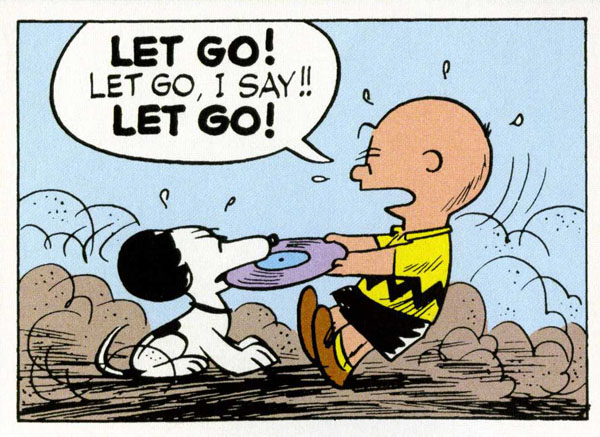
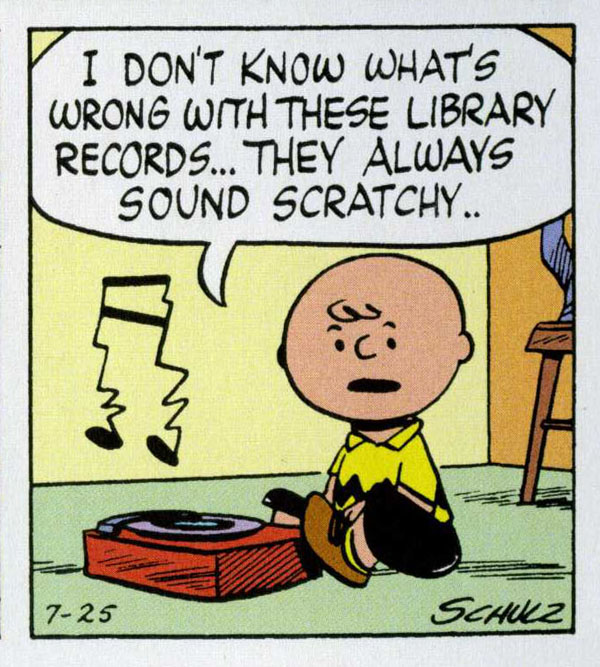
Courtesy Charles
Schulz July 25, 1954
Public
Libraries as Record Lenders
By Doug Boilesen,
2020
In 2020 public libraries
are still known for their printed books and periodicals that
can be checked out. Most libraries also have computers to use
and other media that can be borrowed such as audiobooks, e-books,
CDs, and DVDs.
Having grown up in
the 1950's and 1960's I remember records as the only audio medium
that could be checked-out. My home library was Bennett Martin
Public Library in Lincoln, Nebraska and it would continue to
have records in its collection into the 1990s. Audio cassettes
and video cassettes appeared and disappeared from most libraries,
along with records, as libraries found that they needed to be
part of the digital world to stay relevant to the devices consumers
used and had in their homes.
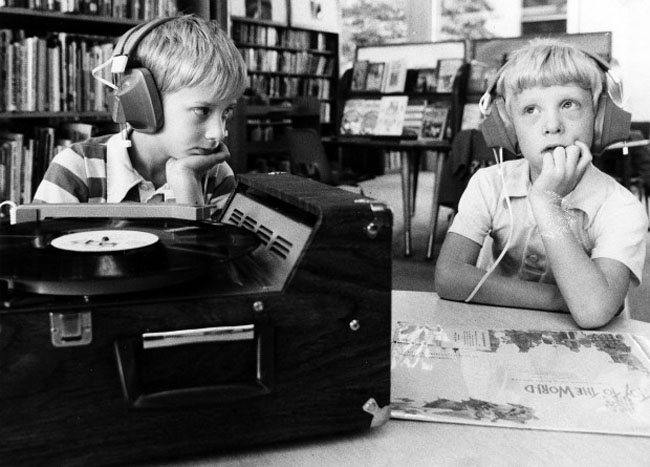
Listening to children's
album at Bennett Martin Public Library 1981
Courtesy Ted Kirk
/ JournalStar
File Photo
However, a renewed
interest in vinyl records in the 2010's reversed that fate of
records in a few libraries.
As a Friend of
the Phonograph I'm highlighting one of those libraries,
the Nutley Public Library in Nutley, New Jersey, because they
returned vinyl record albums to their borrowing shelves and
because they used a creative promotion for that reintroduction.
Here's what the Nutley
Public Library published on their webpage
in 2017 regarding the 25 year lapse and reintroduction of records.
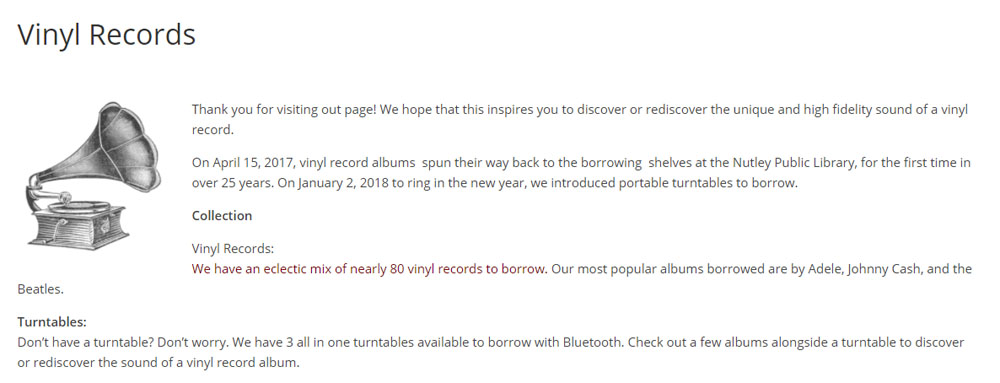
Courtesy
of The Nutley Public Library
Additionally, Nutley
Library offered Tuesday evening events to spotlight their new
vinyl record collection.
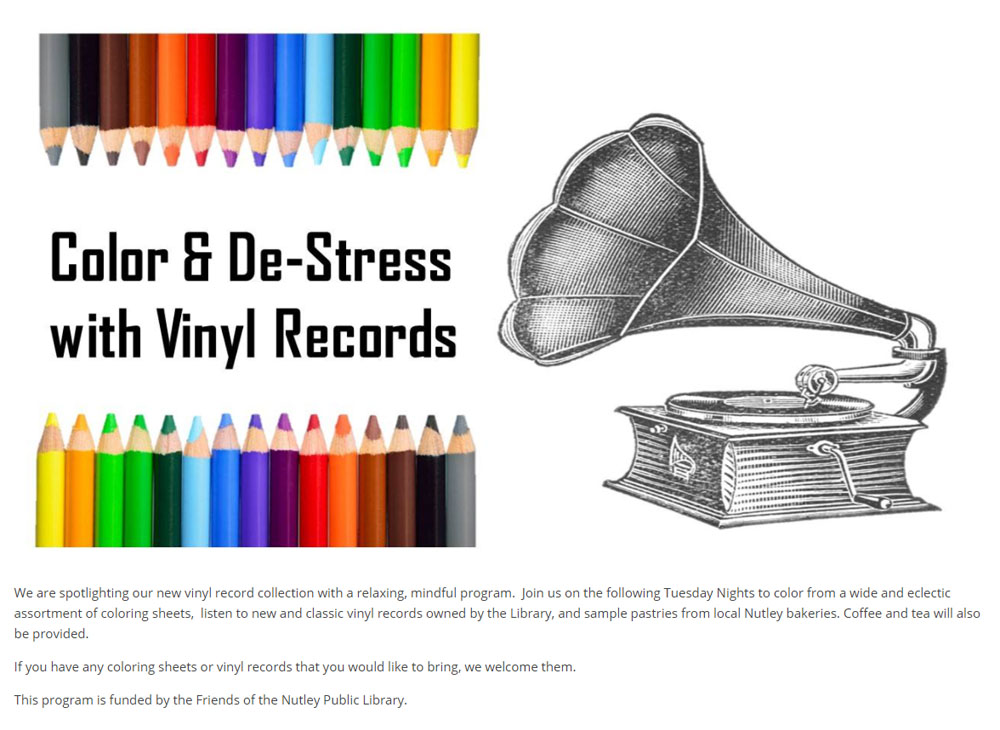
The Nutley Public
Library, Nutley, New Jersey
De-Stress, be mindful
and enjoy the tactile experience of playing vinyl music with
some coffee, tea and pastries. It's a good example set by
Friends of the Nutley Public Library or Friends of Anything.
There are other examples
of public libraries, like Nutley, offering LPs as one of their
lending services, including some of the premier record collections
of the world found in libraries.
The
Vinyl Factory (VF) has identified the following as "the
incredible record libraries where you can listen to vast archives
for free."
The British Library Sound
Archive, London, United Kingdom
The Rodgers and Hammerstein
Archives of Recorded Sound of The New York Public Library,
New York City, USA
Music Library + Understage,
Seoul, South Korea
Music Section, Stuttgart
City Library, Stuttgart, Germany
The Music Room, Potato Head
Hong Kong, Hong Kong, China
"It has not been
for nothing that the word has remained man's principal toy and
tool: without the meanings and values it sustains, all man's
other tools would be worthless." —Lewis Mumford
Libraries
and Reading
This section is a
postscript to restate the importance of libraries, books and
reading. Despite my enjoyment for finding "connections"
with the phonograph and my sense of wonder for recorded sound,
I have concerns about the risks in giving our children recorded
media, including television, movies, and the internet, as their
primary sources of storytelling.
There is no substitute
for a child learning to read.
There is no substitute
for a child being exposed to books and being read stories by
older siblings, parents, grandparents, etc.
Reading should be
part of daily life, and many
others agree.
"One of the greatest gifts
adults can give – to their offspring and to their society
– is to read to children." Carl Sagan
“Reading is to the mind, what
exercise is to the body." Joseph Addison
"One glance at a book and you
hear the voice of another person, perhaps someone dead for
1,000 years. To read is to voyage through time." Carl Sagan
“So please, oh please, we beg,
we pray, go throw your TV set away, and in its place you can
install a lovely bookshelf on the wall.” Roald Dahl
"A book is a garden, an orchard,
a storehouse, a party, a company by the way, a counselor,
a multitude of counselors." Charles Baudelaire
"We read to know we are
not alone." C.S. Lewis
“There is no Frigate like a
Book To take us Lands away.” Emily Dickinson
“The person who deserves most
pity is a lonesome one on a rainy day who doesn’t know how
to read.” Benjamin Franklin
“My alma mater was books, a
good library…. I could spend the rest of my life reading,
just satisfying my curiosity.” Malcolm X
“Until I feared I would lose
it, I never loved to read. One does not love breathing.” Harper
Lee
“Books serve to show a man that
those original thoughts of his aren’t very new after all.”
Abraham Lincoln
"Read a lot. Expect something
big, something exalting or deepening from a book. No book
is worth reading that isn't worth re-reading." Susan Sontag
"I love the way that each book
— any book — is its own journey. You open it, and off you
go…" Sharon Creech
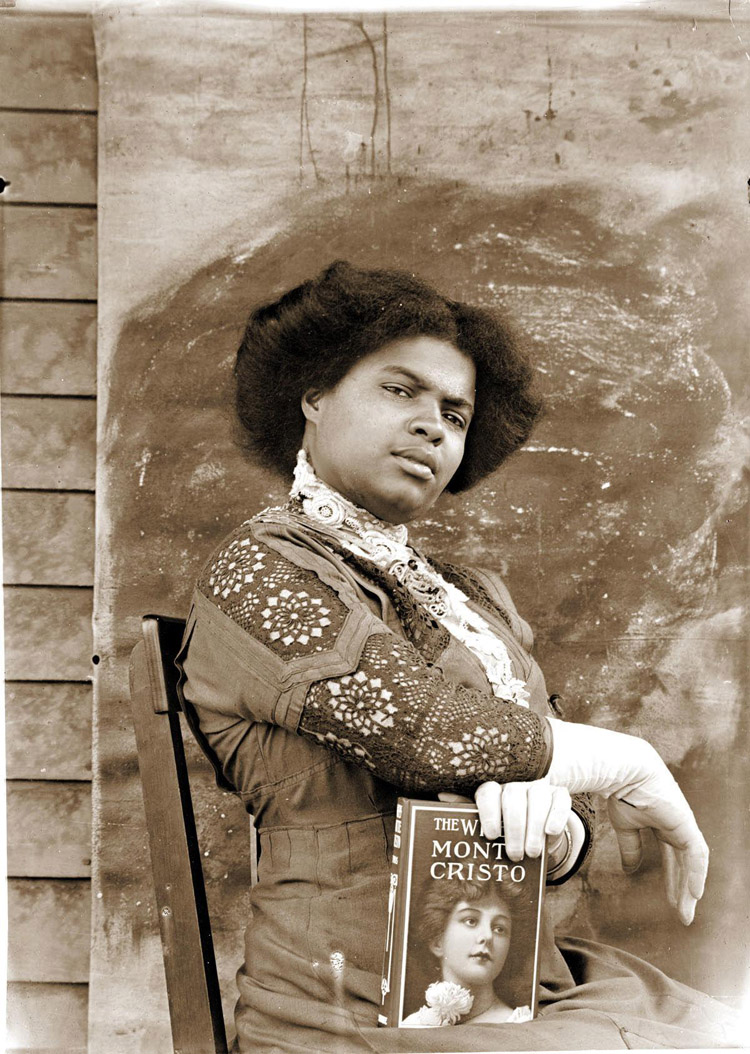
Mamie Griffin, who
worked as a cook, lived at 915 U St. in 1914 with her husband,
Edward, a waiter at the Lincoln Hotel in Lincoln, Nebraska.
Their little house and other humble residences stood on a dirt
street among railroad tracks and industrial uses north of downtown
Lincoln. Far from humble are the dress and demeanor of this
woman, posing confidently with her romance novel, "The Wife
of Monte Cristo." Photograph by JOHN
JOHNSON, 1914. Courtesy Douglas Keister
"I find television very
educating. Every time somebody turns on the set, I go into
the other room and read a book." Groucho Marx
"Read the best books first,
or you may not have a chance to read them at all." Henry
David Thoreau
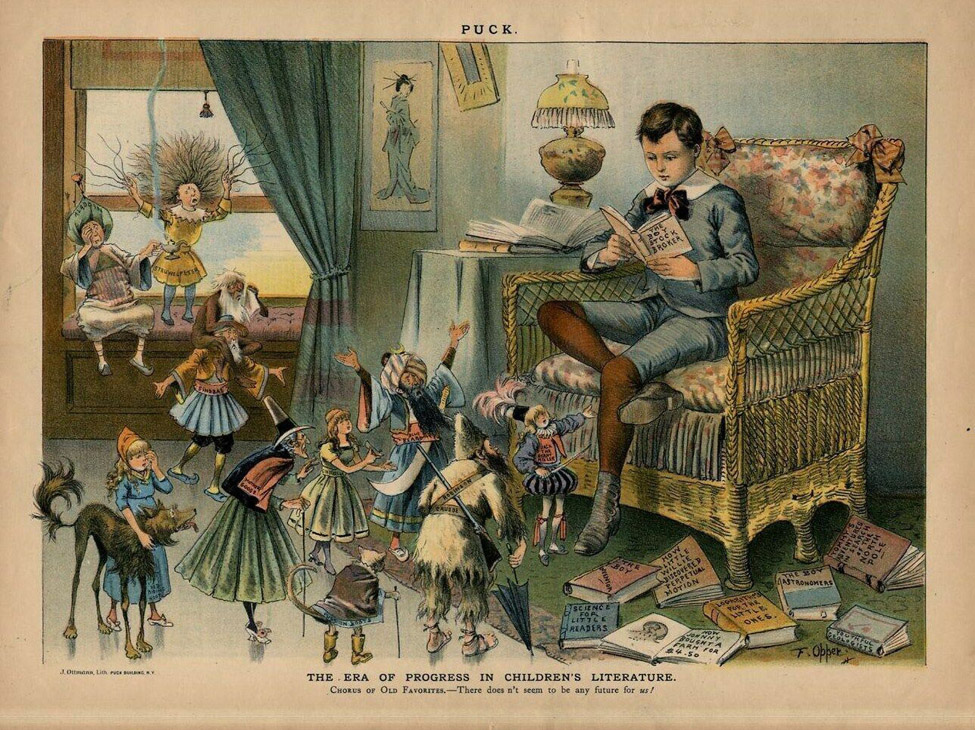
The Era of Progress
in Children's Literature, Puck, 1887 (PM-2100)
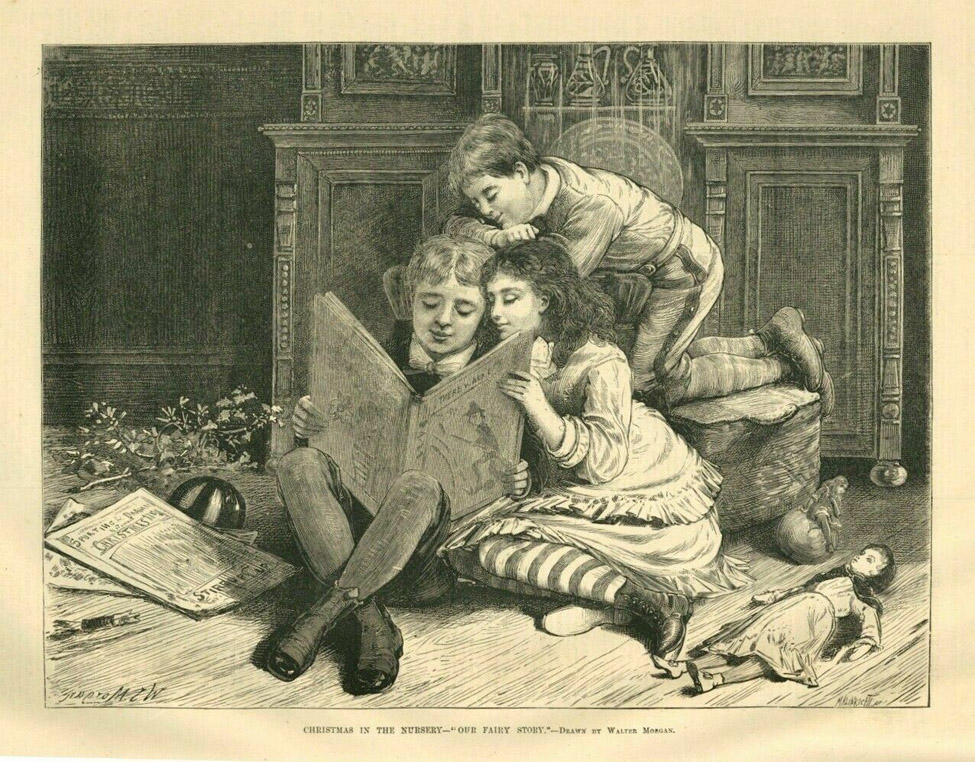
"Our Fairy
Story" Wood-cut engraving from "The Illustrated Sporting
and Dramatic News," 1875
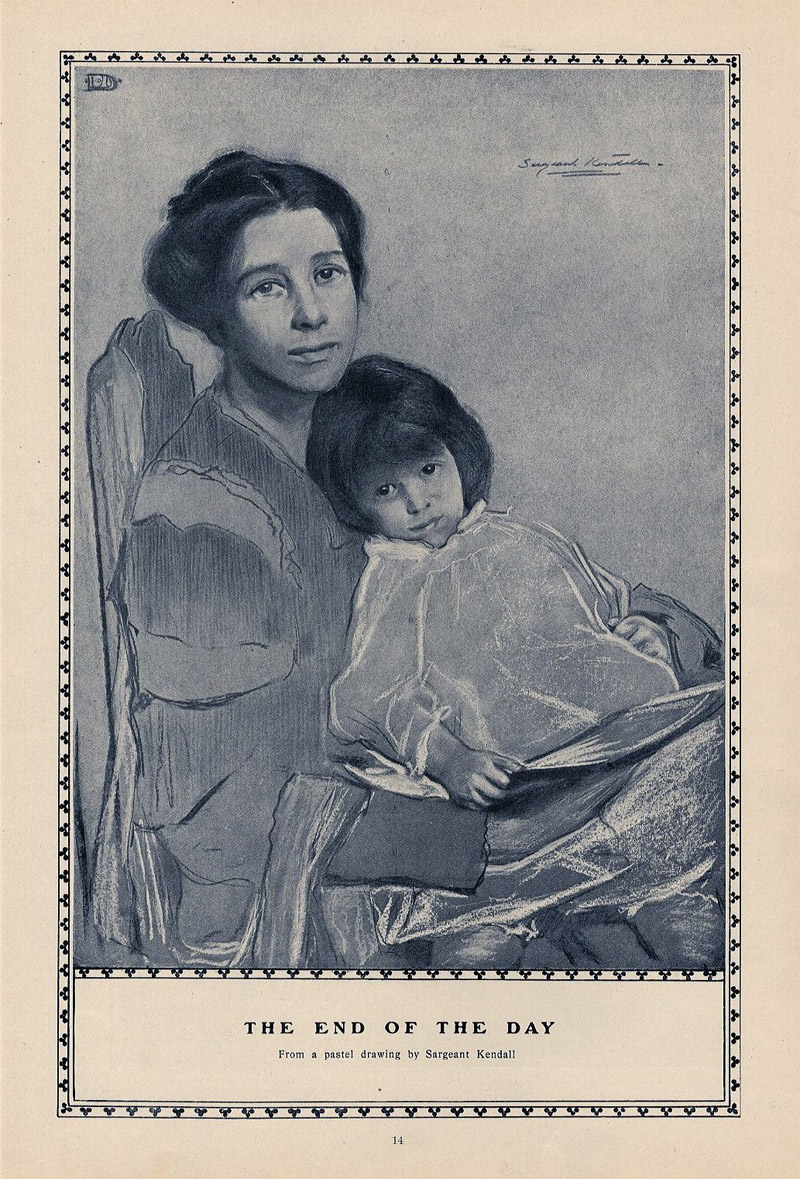
"End of the
Day," Harper's Weekly, December 1903
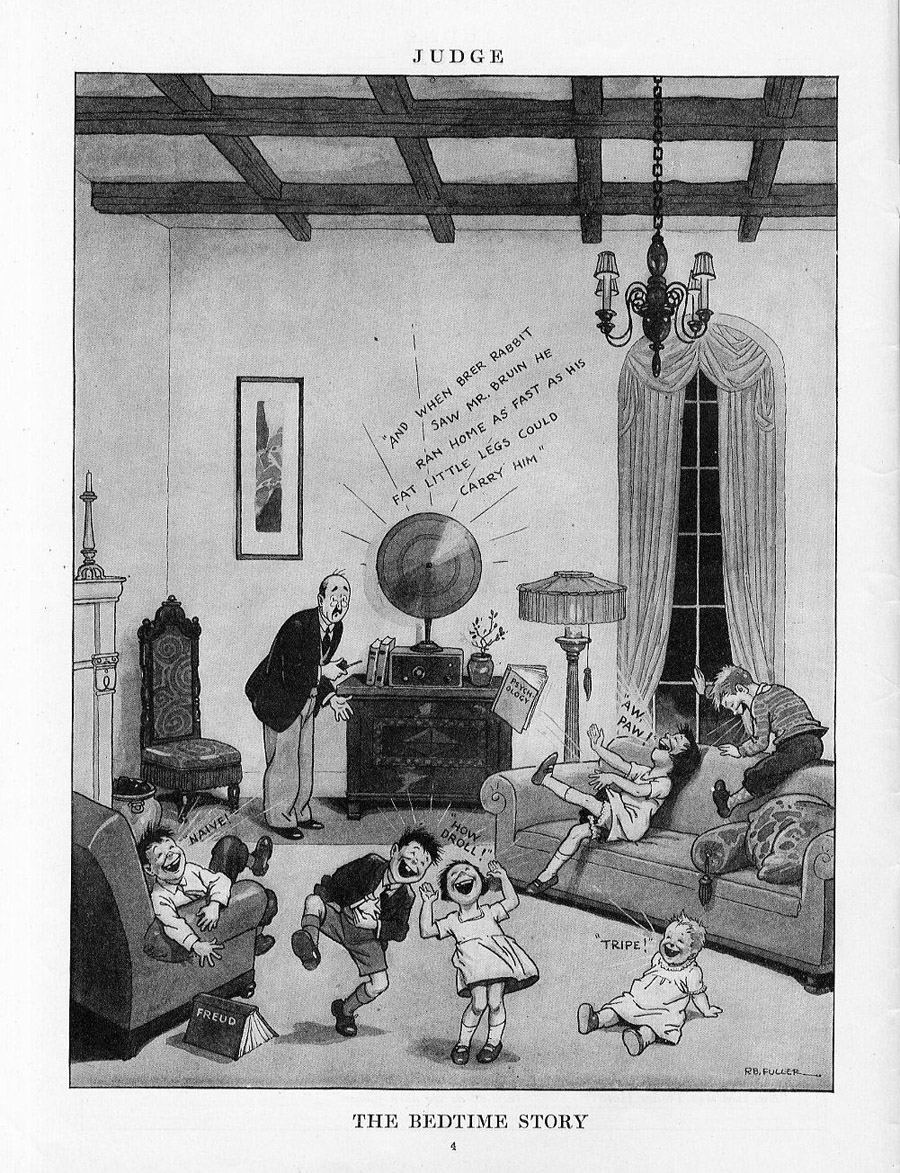
A story broadcast
on the radio and heard by children who have been reading Freud
and psychology books, Judge, April 1928

Phonographia